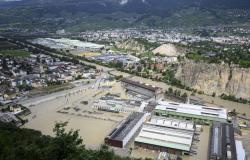For several years now, faced with the shortage of organs and the changing profile of older donors suffering from chronic illnesses making grafts less optimal, transplanters have had to adapt.
This article is taken from the monthly magazine Sciences et Avenir – La Recherche n°928, dated June 2024.
No more than four hours delay for transplanting a heart, six to eight hours for a liver or lung, twenty-four to thirty-six hours for a kidney. This classic image of a race against the clock, between ice packs and a helicopter, is becoming obsolete.
Transplanters had to adapt
Because for several years now, faced with the shortage of organs and the changing profile of older donors suffering from chronic illnesses making grafts less optimal, transplanters have had to adapt. They have developed means of preserving (but also improving) the various transplantable organs. The objective is simple: transplant more patients while also allowing the teams to ultimately schedule interventions to no longer operate at night.
Carried out in January, the Pégase project is a French first. After a twelve-hour commercial flight over the Atlantic, from the Antilles to France, a heart was transported and preserved using a special device (Heart Assist Transport), a hypothermic perfusion ex vivobefore being transplanted to Paris. “The objective is to establish a sustainable heart transplant program in the French West Indies “, write in the Lancet their authors, Professors Guillaume Lebreton and Pascal Leprince, from La Pitié-Salpêtrière hospital, in Paris.
An extension of transplant times
Two years ago, a Swiss team from the University Hospital of Zurich managed to transplant a liver initially considered non-transplantable after three days, a world first. The organ, preserved in a special device (Liver4life, Wyss Institute) imitating the functions of the human body (normothermic perfusion at 37°C), with the addition of antibiotics and hormones, had been successfully transplanted sixty- twelve hours later.
According to published work[…]
Read more on sciencesetavenir.fr






